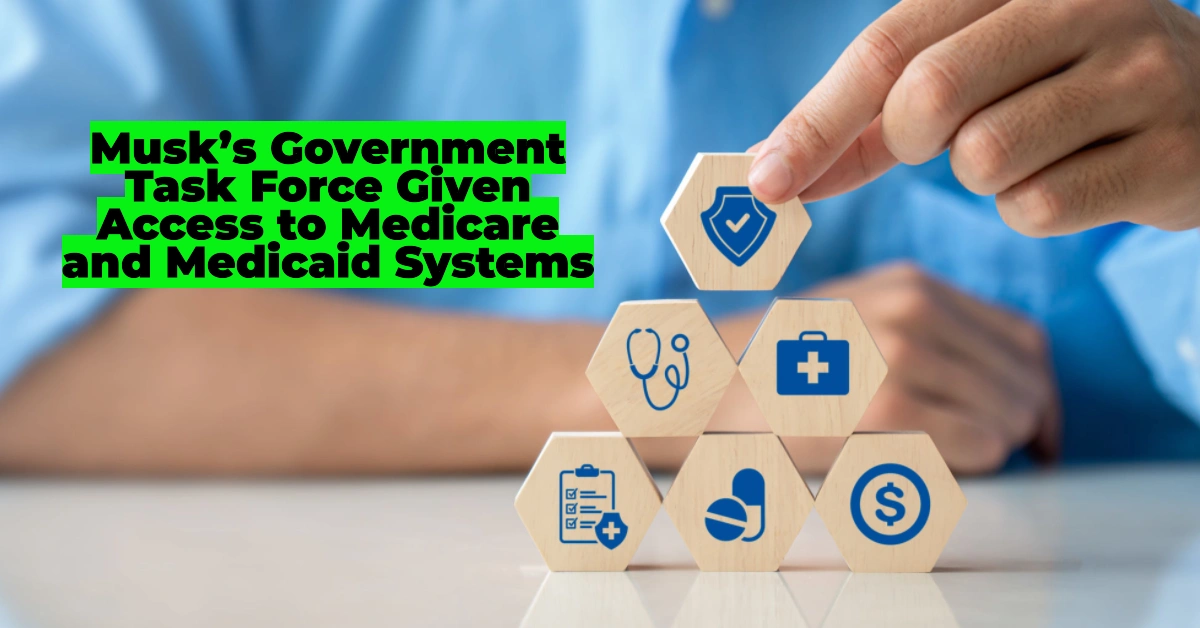In a development that has sparked widespread discussion, representatives from Elon Musk’s Department of Government Efficiency (DOGE) have been granted access to key systems and technology within the Centers for Medicare and Medicaid Services (CMS). This marks an extraordinary move as DOGE continues its mission to identify fraud and inefficiencies in federal programs.
Table of Contents
Understanding CMS and Its Role in U.S. Healthcare
CMS is the agency responsible for overseeing Medicare, the health insurance program serving senior and disabled Americans, and Medicaid, which provides coverage for lower-income individuals and families. Together, these programs serve more than 140 million citizens across the United States. Given their significance, any external oversight or access to these systems is a matter of national concern.
Who Is Leading the CMS-DOGE Collaboration?
CMS has appointed two senior agency officials to work with DOGE representatives. These officials—one focused on policy and the other on operations—are ensuring that DOGE’s access to CMS systems remains appropriate and controlled. The agency confirmed its commitment to safeguarding sensitive information while working towards Musk’s broader government efficiency goals.
GOP’s Social Security Playbook: Mike Lee and Elon Musk’s Vision for the Program Sparks Alarm
The Scope of DOGE’s Access to CMS Systems
According to reports, DOGE representatives have gained insight into major CMS technological infrastructure, including payment processing and contracting systems. The Wall Street Journal, citing sources familiar with the matter, stated that DOGE’s focus is on identifying financial inefficiencies, potential fraud, and waste within government-managed healthcare programs.
Additionally, DOGE representatives are reportedly examining CMS’s organizational structure, staffing efficiency, and procurement processes. However, the CMS and White House officials have assured the public that DOGE’s access is strictly “read-only,” meaning that its members cannot alter any data or records.
Musk’s Public Reaction and the White House’s Defense
Following the WSJ report, Musk took to his social media platform X to assert, without presenting evidence, that “this is where the big money fraud is happening.” His claim has ignited debate about the necessity and potential risks of external oversight over federal programs.
When questioned about DOGE’s access, White House representatives did not address specific concerns but defended Musk’s role in making the federal government more accountable. The administration has positioned DOGE’s involvement as part of President Trump’s broader strategy to cut down on government waste.
Which CMS Systems Have Been Accessed?
Among the systems reportedly reviewed by DOGE representatives is the CMS Acquisition Lifecycle Management system, which contains vital contract-related information. However, according to sources, no personally identifiable health information of Medicare or Medicaid beneficiaries has been exposed to DOGE’s team.
Similarly, the U.S. Treasury confirmed that Musk’s team had been granted “read-only access” to Treasury payment systems but denied allegations that this access has disrupted government payments such as Social Security or Medicare disbursements.
Implications and Concerns About DOGE’s Oversight Role
While DOGE’s efforts may lead to efficiency improvements, concerns remain about the precedent this sets for private individuals—especially those with strong political affiliations—having oversight over government agencies. Critics argue that even with “read-only” access, there is potential for conflicts of interest and breaches of data security.
As Musk’s team continues to evaluate CMS operations, questions remain about what their findings will reveal and how their recommendations will shape the future of America’s healthcare programs. Whether this intervention will be hailed as a revolutionary step toward accountability or a controversial overreach remains to be seen.

2 thoughts on “Elon Musk’s DOGE Task Force Gains Access to Medicare & Medicaid: Unprecedented Move Raises Questions”